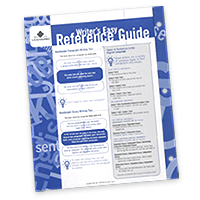What is FAPE?
May 6th, 2009Lyn B. wrote in…What is FAPE?
FAPE stands for Free and Appropriate Public Education. It is what every child is entitled to under Section 504 of the Rehabilitation Act of 1973. This is how students qualify for Section 504 Plans and for IEP plans due to learning disabilities, dyslexia, CAPD, ADHD, or other special education services.
The following is from the U.S. Department of Education Office for Civil Rights, Washington, D.C. 20202:
For elementary and secondary education programs, a qualified person with a disability is a person with a disability who is:
- of an age during which it is mandatory under state law to provide such services to persons with disabilities;�
- of an age during which persons without disabilities are provided such services; or�
- a person for whom a state is required to provide a free appropriate public education under the Individuals with Disabilities Education Act (IDEA).
In general, all school-age children who are individuals with disabilities as defined by Section 504 and IDEA are entitled to FAPE.
How Is an Appropriate Education Defined?
An appropriate education may comprise education in regular classes, education in regular classes with the use of related aids and services, or special education and related services in separate classrooms for all or portions of the school day. Special education may include specially designed instruction in classrooms, at home, or in private or public institutions, and may be accompanied by related services such as speech therapy, occupational and physical therapy, psychological counseling, and medical diagnostic services necessary to the child’s education.
An appropriate education will include:
- education services designed to meet the individual education needs of students with disabilities as adequately as the needs of nondisabled students are met;�
- the education of each student with a disability with non-disabled students, to the maximum extent appropriate to the needs of the student with a disability;�
- evaluation and placement procedures established to guard against mis-classification or inappropriate placement of students, and a periodic reevaluation of students who have been provided special education or related services; and�
- establishment of due process procedures that enable parents and guardians to receive required notices, review their child’s records, and challenge identification, evaluation and placement decisions, and that provide for an impartial hearing with the opportunity for participation by parents and representation by counsel, and a review procedure.
I hope this is helpful.
Bonnie Terry, M. Ed., BCET




























